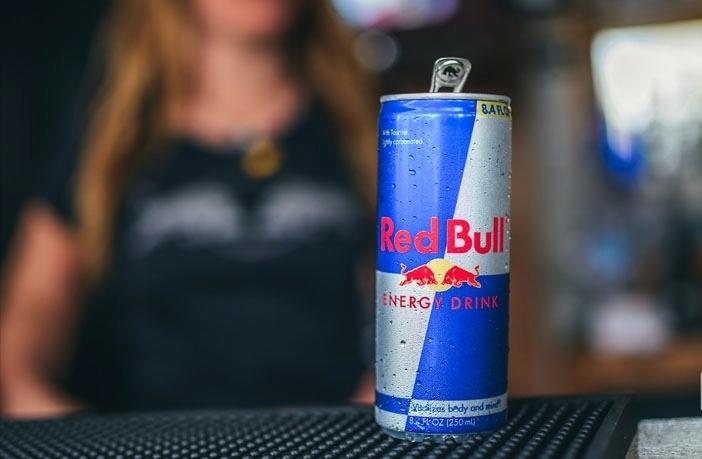Is Red Bull Energy Drink Bad For You?

Is Red Bull really that bad? A common perception is that energy drinks may be bad for you because of the amount of caffeine and sugars that make up energy drinks such as Red Bull, Monster, Rock Star, and Kickstart just to name a few in the market today. Of course, not all energy drinks are the same.
It’s probably safe to say that too much caffeine intake is not good for the body, however, consuming caffeine in moderation is common in the average person’s daily routine. To put it in perspective, is drinking a cup (or two) of coffee or tea a day bad for you?
Here’s a caffeine break-down:
- Black tea – One cup (8 oz.): 14 – 70 mg of caffeine
- Green tea – One cup (8 oz.): 24 – 45 mg of caffeine
- One cup (8 oz) of coffee: 95 – 200 mg of caffeine
- 1 can of Red Bull (250 ml/8.4 oz.): 77.4 mg of caffeine
There are several benefits to drinking Red Bull, however, we’ll focus this article on the benefits of the B Vitamins. Red Bull contains Vitamins B6 and B12. Vitamin B6 is available in a variety of foods, with the richest sources coming from fish, beef liver (and other organ meats), potatoes and other starch vegetables, and non-citrus fruits. Vitamin B12 is naturally available in meats, fish, poultry, eggs, and dairy products.
Let’s start with understanding a bit more about Vitamin B6.
Vitamin B6 (i) plays an important role in the metabolism of protein, fat, and carbohydrates, and in the creation and development of red blood cells and neurotransmitters (1); (ii) is essential for the brain to produce serotonin, a neurotransmitter that relaxes you and lifts your spirits (also known as the “feel-good” neurotransmitter); and (iii) plays a vital role in hemoglobin production. Hemoglobin is a protein that helps deliver oxygen to your cells. When your blood cells have more oxygen, you feel more energized and alert.
Now what about Vitamin B12?
Vitamin B12 helps your body convert carbohydrates to glucose which your body uses in order to keep you active and alert, instead of feeling fatigued and sluggish. Vitamin B12 also plays a vital role in helping your body produce red blood cells. If your body doesn’t produce healthy red blood cells (which are small and round), the blood cells will typically become irregular in shape (larger and oval in shape), which makes it difficult for the blood cells to move from the bone marrow to the bloodstream at an appropriate rate. When you body can’t transport enough blood cells to feed oxygen to your vital organs, you’ll experience symptoms such as feeling weak or tired.
Why Calories?
A calorie is a unit of energy. The number of calories contained on the packaging of a drink or food item, it is describing how much energy your body could get from eating or drinking it.
Here’s a calorie break-down:
- Black tea – One cup (8 oz.): 2 calories
- Green tea – One cup (8 oz.): 0 calories
- Brewed black coffee – One cup (8 oz): 1 – 5 calories
- One cup (8 oz) of brewed coffee w/2 tbsp of cream: 106 calories
- One shot (1 oz) of espresso: 3 – 5 calories
- 1 can of Red Bull (250 ml/8.4 oz.): 117 calories
Since Red Bull is an “energy drink”, it would make sense that a can of Red Bull would contain more calories when compared to coffee or tea.
Coffee or Tea vs. Red Bull?
When you need that daily “pick-me-up” from drinking a cup of coffee or tea, you’re essentially consuming the same amount of caffeine compared to drinking a can of Red Bull in order to give you that extra boost of energy. The difference here is that by drinking Red Bull, you get the caffeine and calories needed to energize you, to keep you alert and focussed, plus you’re also getting Vitamin B6 and B12 supplements that will benefit your mind and body.
(1) https://ods.od.nih.gov/factsheets/VitaminB6-HealthProfessional/